Lilia Bacu’s mother told her, ‘Listen to your heart.’ Now Bacu does voluntary cardiac care in Rwanda
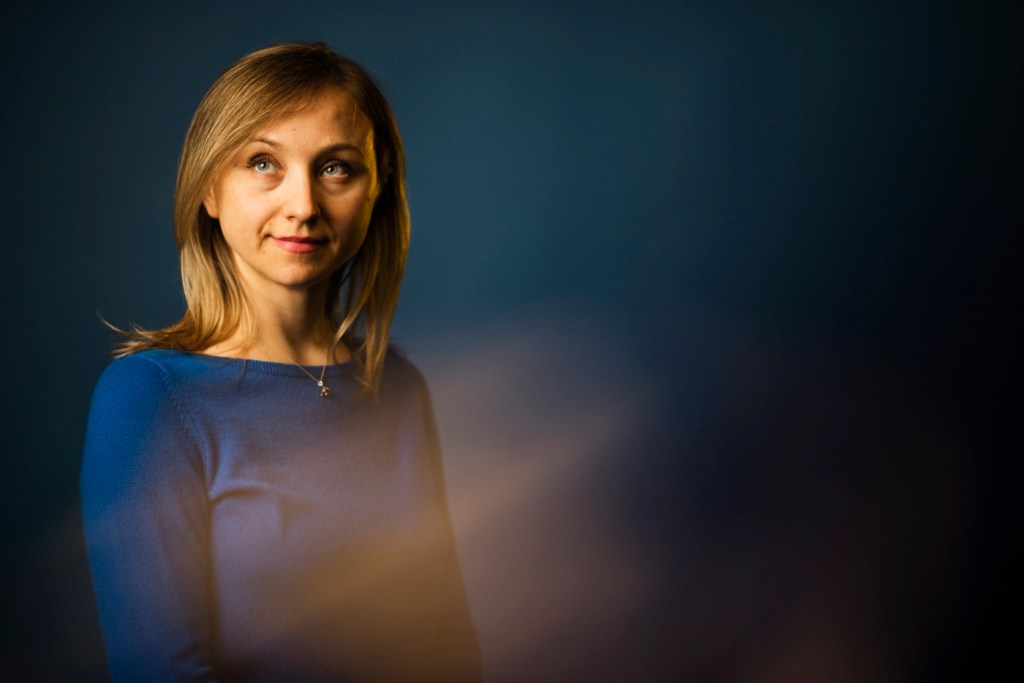
When most people use the phrase, “Listen to your heart,” they mean to say, “Follow your passion,” not literally to listen to the sound of one’s heart. When Lilia Bacu’s mother said it to her, however, she meant it figuratively and literally.
And Bacu took the advice, well, to heart. She’s a nurse practitioner in the cardiac surgery ward at Massachusetts General Hospital, and recently returned from her third trip to Rwanda, where she volunteers with a nonprofit organization to provide cardiac care to a population that desperately needs it.
Bacu, a Northeastern alumna and part-time lecturer in the School of Nursing in the Bouvé College of Health Sciences, moved to the United States from her native Moldova to study nursing.
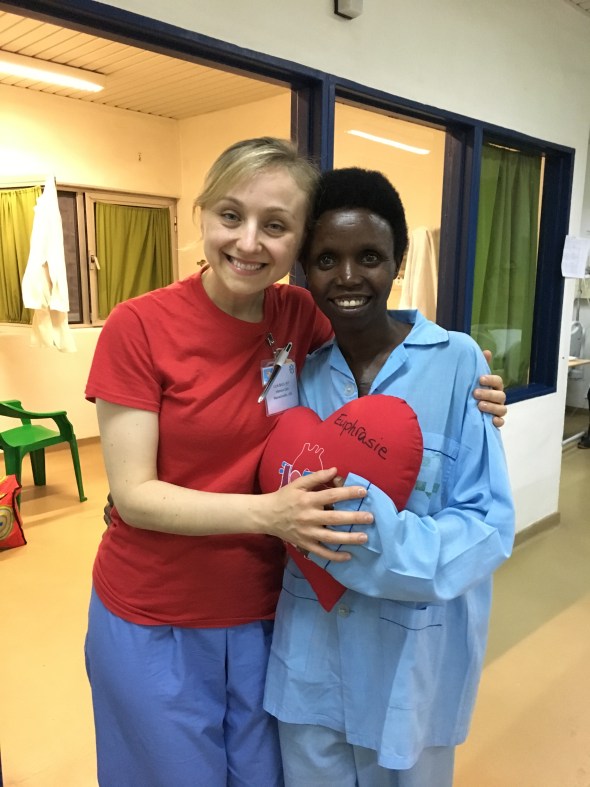
Her mother inspired her choice and encouraged her work. Cardiology was a profession to which her mother always aspired, but never attained. Moldova at the time was still part of the Soviet Union, where membership to the Communist Party—something Bacu’s mother wasn’t—was requisite for any sort of academic mobility.
“So when I would come home, she would want me to listen to her heart, take her blood pressure—she was interested in all of it,” said Bacu, BHS’10, MS’15.
A self-described “go-getter,” Bacu worked her way through nursing school, finished her medical licensing exams, started as a registered nurse at Baystate Medical Center in Springfield, Massachusetts, before becoming a nurse practitioner in Massachusetts General Hospital’s cardiac surgery ward in 2016.
Still though, she wanted to do more. That’s when she found out about Team Heart, a nonprofit medical organization dedicated to bringing sustainable cardiac care to Rwanda.
The country, recovering from the 1994 genocide that claimed the lives of hundreds of thousands of people, is in dire need of cardiac disease care.
According to Team Heart, electrocardiogram machines—standard equipment necessary for the detection of a multitude of heart issues—can be found in only five hospitals throughout the country.
And while there are few hospitals equipped to offer a wide range of heart services, there are even fewer doctors and nurses with the specialized training to do it. In a country with a population of more than 11 million people, Bacu said, there are just five cardiologists.
You see people’s lives change immediately after surgery. Recovering from surgery is painful, but everyone I’ve worked with comes out smiling, because they know they have a second chance at life afterward. We’re helping people have another chance at life. That’s a personal commitment.
Lilia Bacu, BHS’10, MS’15, part-time lecturer in the School of Nursing in the Bouvé College of Health Sciences”
Rheumatic heart disease—most often caused by untreated strep throat—is one of the most common health problems in Rwanda. The disease damages one or more of the four heart valves responsible for keeping blood flowing. Untreated, it leads to difficulty breathing and, often, death.
“When you have 14-, 15-, 16-year-olds dying of heart failure, that is a problem. This is common in Rwanda,” Bacu said, pausing to think. “We see maybe a couple cases of rheumatic heart disease a year at MGH. It’s a disease that’s almost been eradicated in the Western world.”
In Rwanda, however, with little to no infrastructure to detect and treat such a preventable medical condition, heart disease runs rampant. This is where Team Heart and Bacu come in.
This marks the 11th year the nonprofit has set up a temporary cardiac ward in Rwanda, and the third that Bacu has volunteered there. It’s an endeavor that takes nearly a year to plan, as Team Heart supplies everything—equipment, medication, anesthesiologists, nurses, doctors, the list goes on. They’ll operate on something like 16 people over the course of eight days, and treat many more who don’t require surgery.
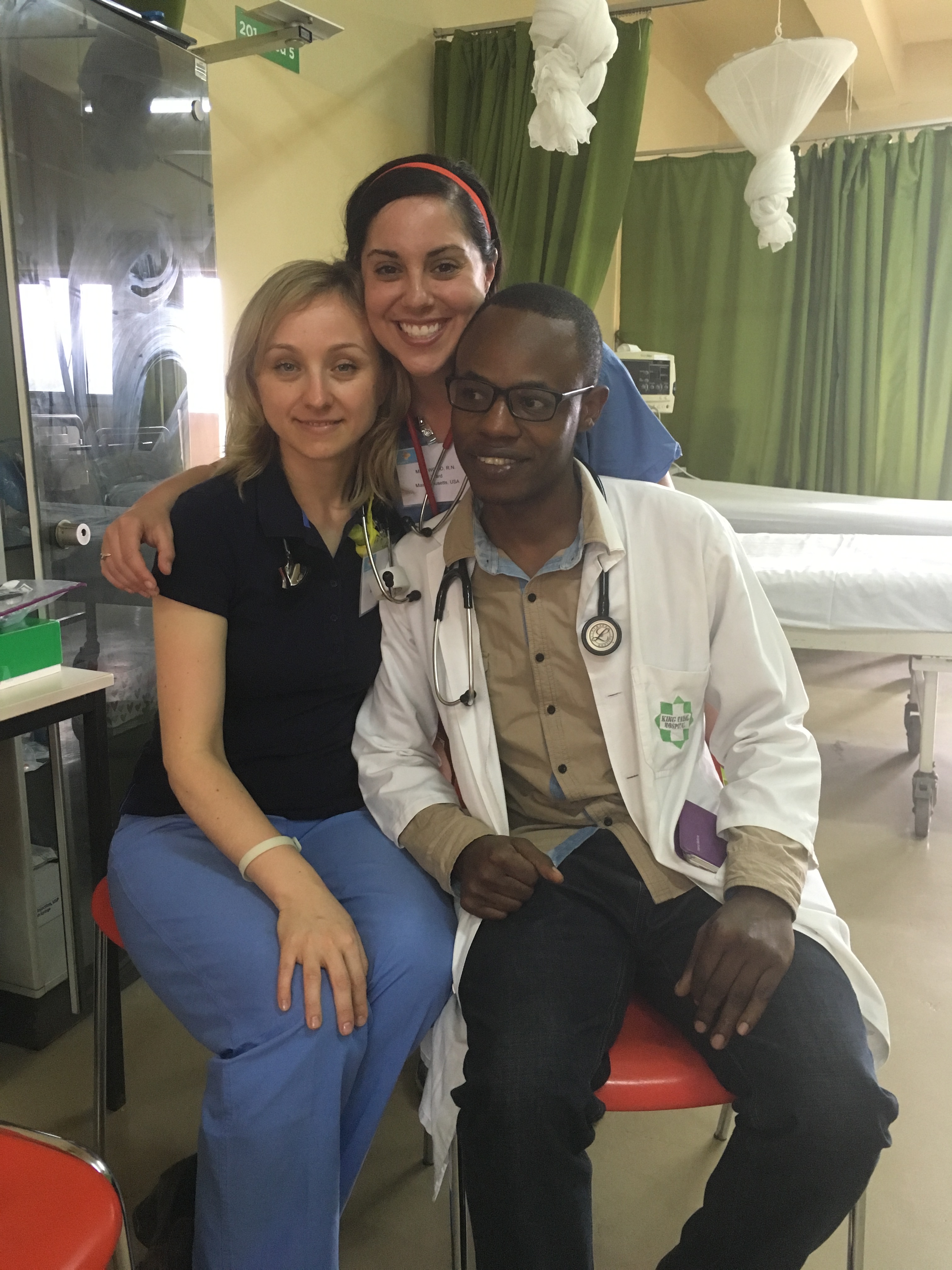
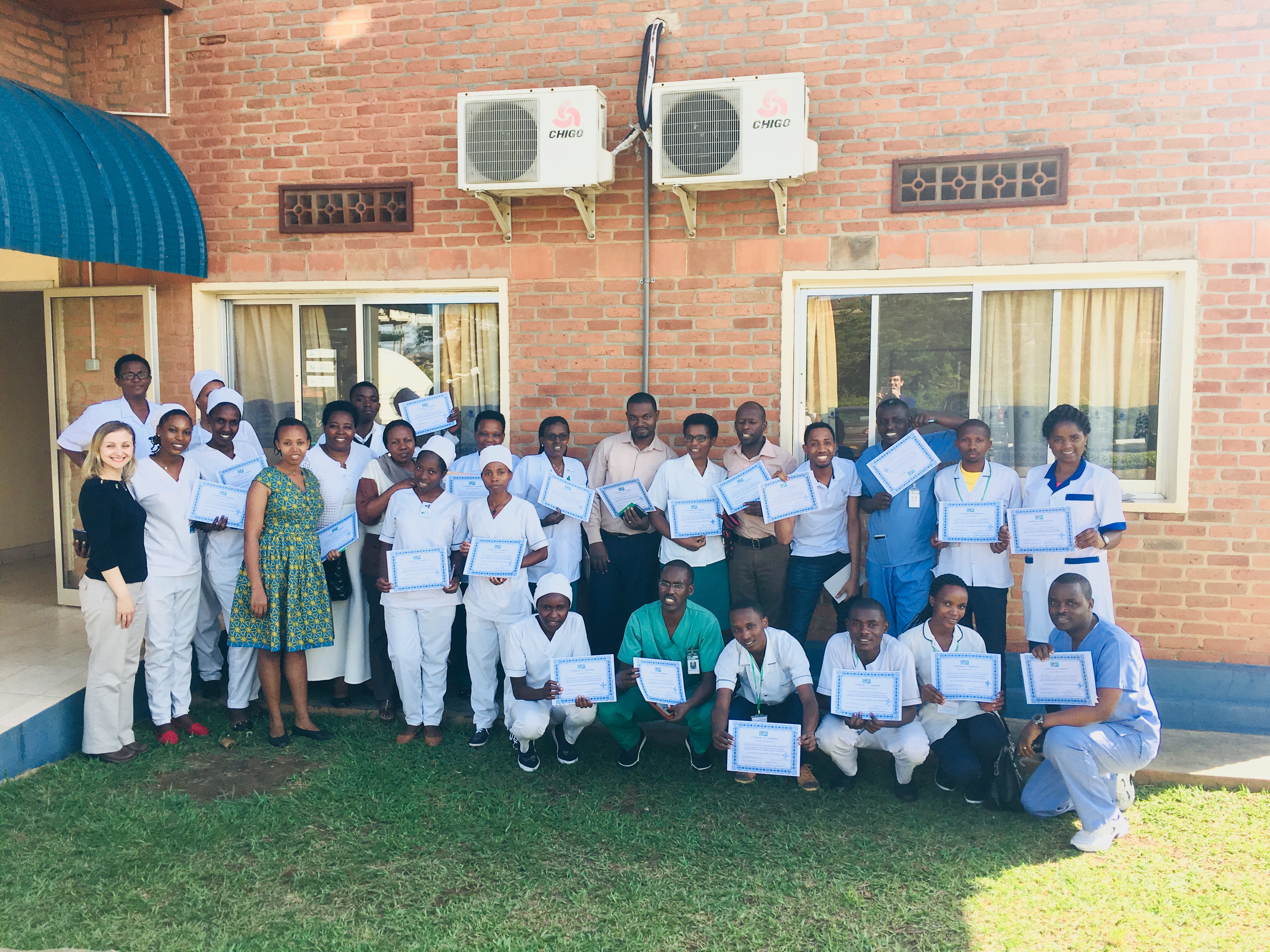
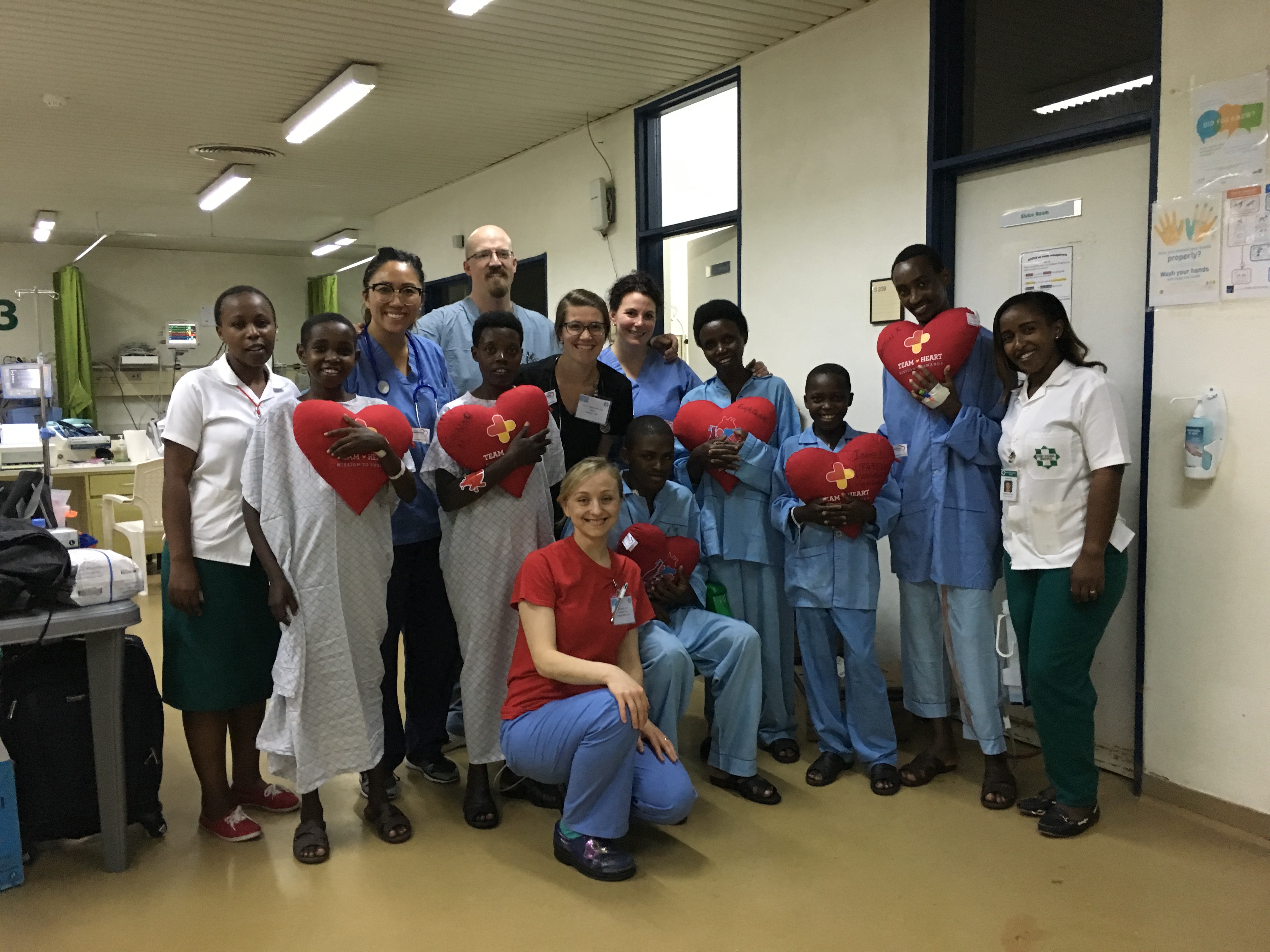
The first year Bacu volunteered, she worked with patients who had been released from the intensive care unit, but weren’t yet strong enough to be discharged. The second year, she worked in the ICU.
But even this care barely addresses the need. Choosing surgery candidates comes down to an excruciating choice: Who is strong enough to survive the operation but sick enough to need it now? Who will still be alive in a year, when Team Heart returns?
All this underscores the importance of establishing a sustainable cardiac program in the country: training doctors to do the work, setting up a fund to purchase necessary equipment. Much of Team Heart’s work could be eliminated with early detection and care, Bacu said.
This is why this past year’s work has been Bacu’s most gratifying to date. She organized four days of educational sessions, which were attended by more than 50 medical professionals from the region whom Bacu described as “absolutely thirsty for knowledge.”
“We worked on critical care concepts, transferring essential skills—the goal is to make this self-sufficient,” Bacu said.
Until then, Bacu plans to continue volunteering her own skills, time, and passion.
“You see people’s lives change immediately after surgery,” she said, her voice getting thick with emotion. “Recovering from surgery is painful, but everyone I’ve worked with comes out smiling, because they know they have a second chance at life afterward. We’re helping people have another chance at life. That’s a personal commitment.”





